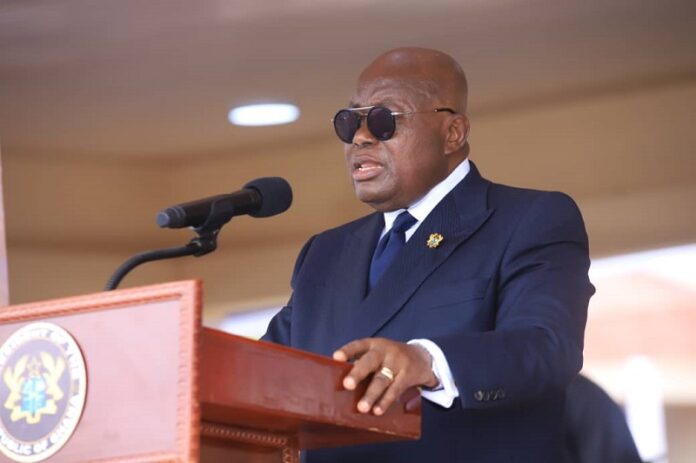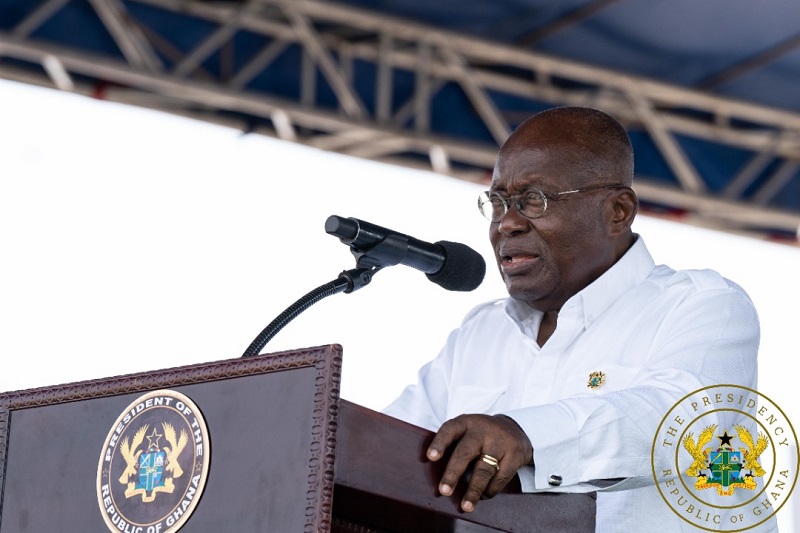
President Nana Addo Dankwa Akufo-Addo, has directed the Customs Division of the Ghana Revenue Authority (GRA) to suspend its planned implementation of government’s policy directive on the reversal of the reduction of values of imports on selected items, known as the “benchmark values” from the 4th of January 2022.
Asaase News sources familiar with the President’s directive indicate that the President is of the considered opinion that “the complaint about hardships by Ghanaians are real” and to that end, implementation of the policy should be delayed for further and wider consultations on it.
GRA statements
GRA in a statement dated the 2nd of January 2022 and signed by Florence Asante (Mrs), Assistant Commissioner, for Communication & Public Affairs, indicated that Effective Tuesday, 4th January, 2022, the Customs Division of the Ghana Revenue Authority (GRA) will begin the implementation of the reversal which will affect all three categories of items on which the reversal was applied, namely, the home delivery value of vehicle, goods on which benchmark values are applied and all other goods.
The GRA again in a statement dated the 7th of January 2022, postponed the implementation of the reversal to the 17th of January 2022, to allow a storage-free period for vessels that discharged on 31st December 2021 to go through clearance without being affected by the reversal of the policy.
According to the release, effective Monday, 17th January 2022, any Bill of Entry (BOE) presented without payment of duty and other taxes or deposit of security (where it is a suspense cargo) will be affected by the policy.
A bill of entry according to the release shall require reprocessing to be affected by the new policy.
Reversal decision
Government in 2019 introduced the benchmark policy in accordance with the World Customs Organisation’s policy of regular review of valuation database. Under this policy, certain commodities are benchmarked to the prevailing world prices as a risk management tool, to reflect the true market dynamics of these commodities.
Consultations
The 2019 government policy also took into consideration factors such as protection of health, the environment, and security as well as protection of local industries.
In line with the reversal, series of engagements have been had with relevant stakeholders with the aim of reaching a consensus on the implementation of the policy. In all forty-three (43) items on the list were expected to be affected by the review.
Opposing views
Business groups in the country kicked against the recent decision government to suspend the 50% benchmark values on selected goods and the 30% on vehicles.
Their opposition to the policy followed a 25th of November 2021, crunch meeting by the Ghana Union of Traders Association (GUTA) comprising 68 trader associations and other business groups.
In a statement issued by GUTA on behalf of the business groups ahead of their 25th of November meeting on Wednesday (24 November), GUTA, said the conditions that necessitated the introduction of the policy has been worsened following the outbreak of the COVID-19 pandemic.
GUTA said, “The policy of reducing the benchmark values did not come out of the blue. It was introduced in 2019 to save businesses in the country from total collapse, as a result of the very high import duties, other numerous taxes, high fees and charges on imports ranging between 55% to 65%, draining our capital.”
“This unbearable situation led to outcry and serious agitation by members of the business community, especially importers and call for a drastic reduction of cost of doing business in the country.”
“In view of the aforesaid, we are stating without any equivocation that we shall not accept the reversal of the benchmark value reduction policy, which we hope the government will, with all due respect, listen to our voice and avert any rift and unrest in the country” the GUTA statement said.
Source: Asaaseradio.com



